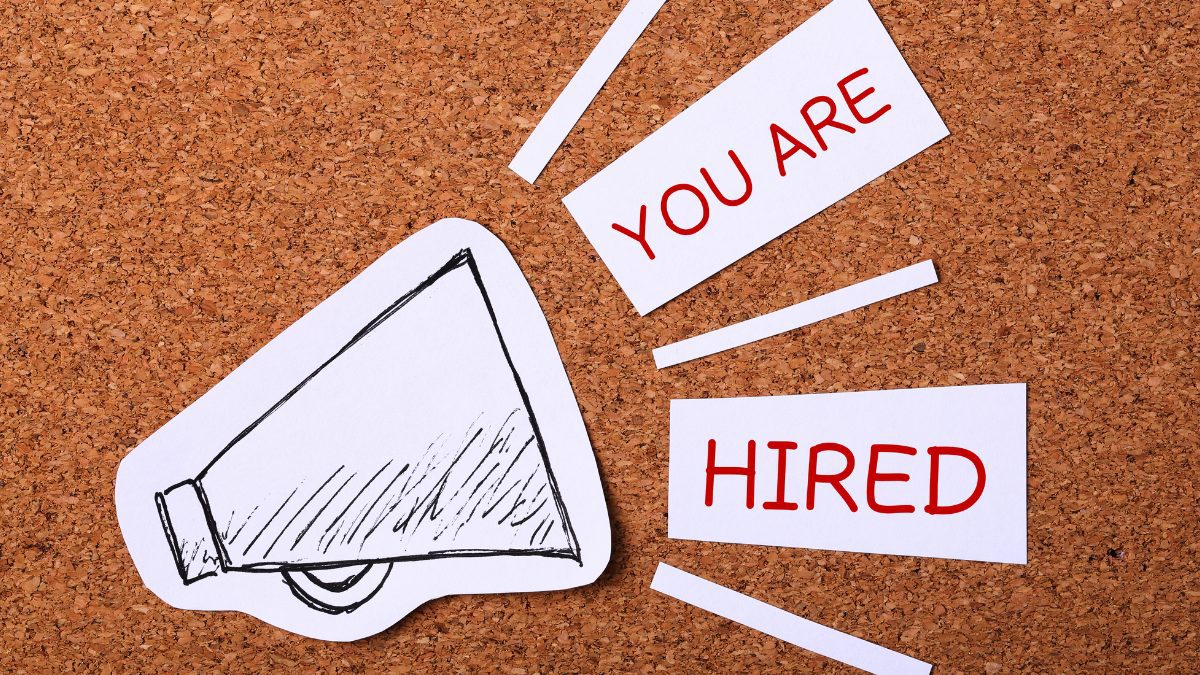
An Efficient Interview Process Can Make or Break Your Company’s Hiring Success
In the life sciences industry, the top candidates that you interview typically receive multiple offers. That’s just a reality for hiring managers. Another hard reality is that time is of the essence when it comes to scheduling, conducting and completing the interview process.
The quality and efficiency of your interview process can truly make or break your hiring efforts.
According to a LinkedIn blog entitled The Negative Impact of a Slow Hiring Process, “…the top 10 percent of candidates have accepted an offer within just 10 days.”
“Your employees are your greatest competitive advantage and the greatest cost center for your business, so shouldn’t hiring also be one of your greatest priorities?” reflected Laura Frew, Senior Scientific Recruiter at Workforce Genetics. “Time and time again we see employers who don’t prioritize their recruiting and interview processes and they end up losing really good potential employees as a result.”
Moving your interview process forward smoothly and quickly should be standard operating procedure. And that 10-day window has to be within the upper range of your teams’ ability to go from first interview to offer acceptance.
Most company’s interview processes aren’t a complete disaster, but they usually need some important adjustments and to be continually managed to ensure bottlenecks get removed and your process can advance in a streamlined fashion.
So, how can you get your interview process into an ideal state?
Here are some recommendations and insights that you can use to assess and improve your interview process right now to beat out your competitors when it comes to top talent.
Create SOPs for Interviews
Process is critical when it comes to an efficient and effective interview workflow. It’s also important for you and your team to accept that your process will evolve over time and that constant assessment and improvement need to be top of mind always.
Who would have foreseen the pandemic and the pivot to a virtual interview process, for example?
Hiring teams with strong processes were able to pivot successfully while those with chaotic interview processes struggled to adjust. Strong process should create structure but not rigidity; a great interview process needs to allow for agility and successful change management.
Here’s how you can develop standard operating procedures for your interview experience that will deliver structure and the space for improvisation when needed:
- Create an interview step-by-step plan, document it and get buy in from your team
- Identify which team members will interview for what characteristics (hard skills, culture, fit, etc)
- Align on clear expectations for the role and the ideal candidate, including where the hiring team is willing to compromise and what are the “must haves”
- This could include assigning a value/point system to weigh key pre-requirements and qualifications for the job
- Try not to move the goal posts based on the quality/type of candidates interviewed
- Build in an established internal feedback plan/process.
- Meet as a team either after interviews or on a weekly basis to discuss several interviews at once
- Provide ongoing training to reduce bias in the interview process
Hit the Right Topics During the Interview
The broad interview SOP outlined above is important for the reasons mentioned. That said, tailoring specific interviews based on role and experience level is also critical. Building the general interview structure provides clarity and space for your hiring team to stay agile and create questions and evaluation points that will yield a high quality hire.
“Each role is different and, of course, has different requirements. For my process I have a broad outline of what I need to find out to properly assess a candidate based on the role—there are certain personality traits/technical skills I have to get clarity on to do my job correctly and efficiently,” stated Frew.
When interviewing specific candidates, consider:
- Carefully observing the candidate’s body language
- Are they maintaining eye contact?
- Are they smiling? Are they nervous?
- Are they dressed appropriately?
- Evaluating hard skills to ensure alignment to job requirements
- Consider adding in tests that require demonstration of technical skills (Note: Any tests should be effective assessments but relatively light lifts for the candidate regarding time commitments)
- Asking questions that test a candidate’s knowledge of your company. Did they conduct prep research on your company? Do they understand what your company does, why it does it and where it is heading?
- Evaluating soft skills in addition to technical acumen
- Does their personality mesh with the team they will work with?
- Does the candidate seem to align with the workplace culture?
- Do they possess the work ethic to succeed?
- Do they have passion for the job and the mission?
- Do they have 3-5 year career goals, and if so what are they?
Be Responsive and Assess in Real Time
Your team needs to have the processes in place to move fast and the confidence and skills to assess the process in real time. This creates a foundation upon which speed and interview agility is built. During the interview process, your team needs to commit to:
- Sticking to and conducting interview debrief meetings with the hiring team. This has to be a priority because if these meetings don’t happen, bottlenecks emerge and the entire process slows.
- Being earnestly and unwaveringly committed to hyperresponsiveness. After each interview milestone is completed by a candidate, your hiring team should provide feedback to candidates within a 24-48 hour window.
- Constantly monitor debrief details that will help refine your talent search. You’ll want to stick to the team’s consensus “must-haves” and “nice-to-haves”, but there are times when the search needs to pivot based on this collected data.
- Put contingency plans in place that will accelerate the process should a candidate receive another offer.
“Good/bad SOPs, and the people who carry them out, will make or break your success. Having proper SOPs in place for the hiring process is just smart business for your team and for those you hire. Your team will appreciate that you’re able to hire the best new talent that will help with the workload and achieve the mission, and the candidate will view your efficiency and timely feedback as a sign that your company is well organized and that you’re excited to have them join the team,” shared Frew.
A poor, laborious and slow interview process creates a lackluster candidate experience and could cost your company money, talent and productivity while damaging your employer brand in the talent market.
Building your interview SOPs will empower your hiring team to be hyper-responsive to candidates, agile to changing talent market conditions, and most importantly, it will move a candidate through the interview process efficiently. This creates great candidate experiences and will increase your hiring success especially when it comes to securing the top 10% of candidates for a given industry or role.
- About the Author
- Latest Posts
Over the past 11 years, Chris has grown BioBuzz into a respected brand that is recognized for its community building, networking events and news stories about the local biotech industry. In addition, he runs a Recruiting and Marketing Agency that helps companies attract top talent through a blended model that combines employer branding and marketing services together with a high powered recruiting solution.





